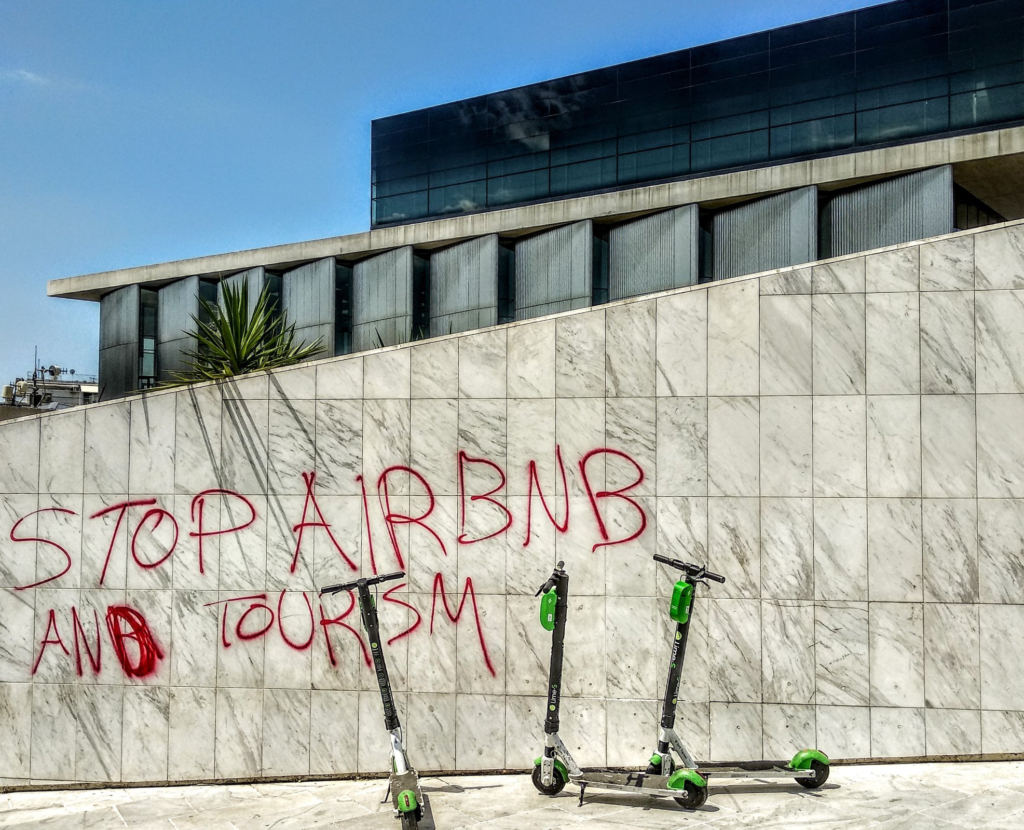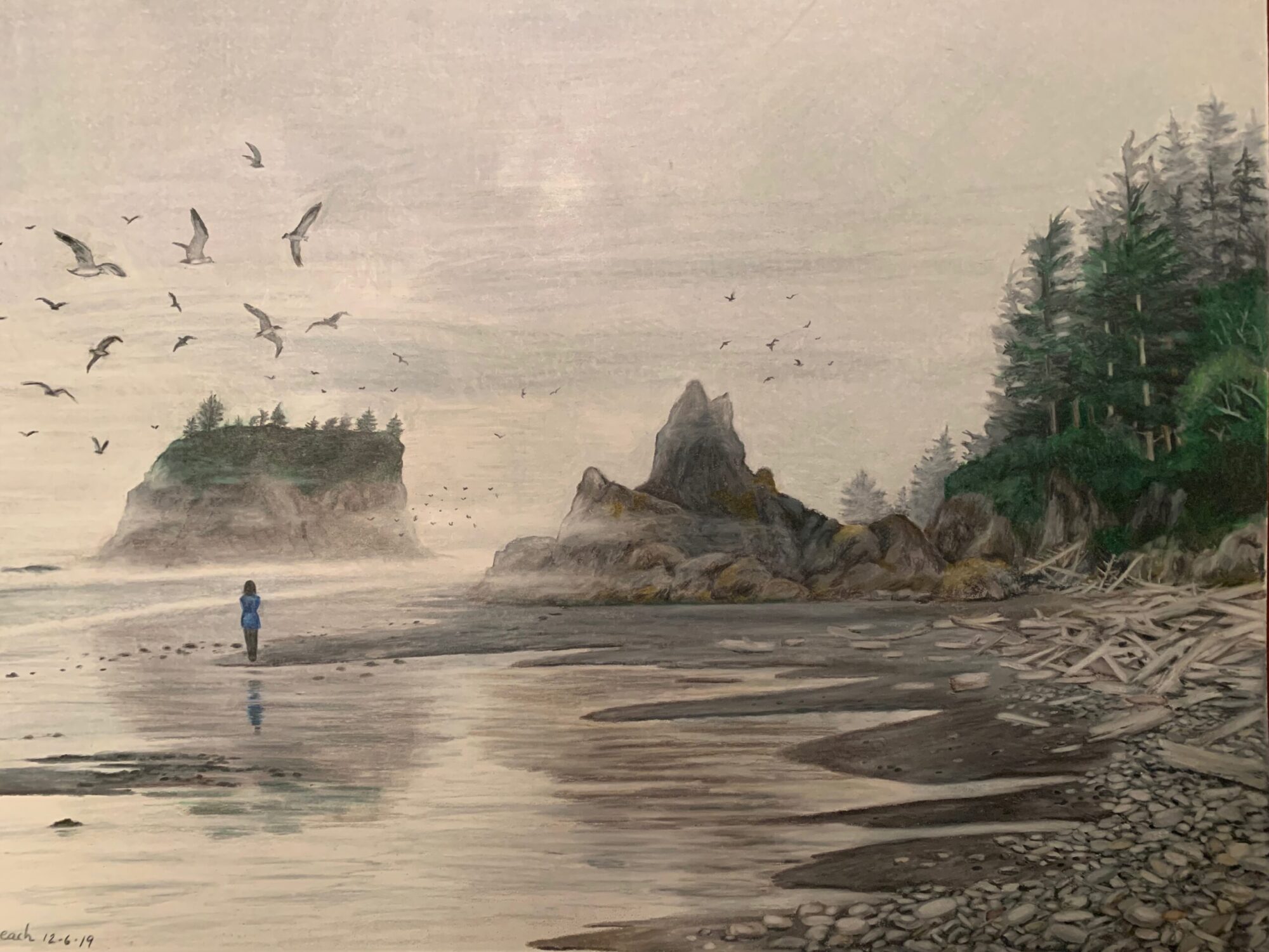AirBnb has come to revolutionize the tourism and hospitality industry over the last 15 years, offering travelers a wider variety of places to stay at properties with special features and lived-in amenities. While AirBnb may appear to benefit the communities of “Hosts” by increasing tourism and offering a new source of revenue for property owners, a study from the Economic Policy Institute found in 2020 that holiday rentals actually harm local economies more than they help. This is largely due to AirBnb’s negative impact on housing prices and supply, an effect that some scholars have coined as “the new gentrification battlefront” (Cocola-Gant). Increases in AirBnb listings empirically increase local rent and house prices as homeowners and landlords’ pivot towards the lucrative holiday market reduces the supply of long-term affordable housing (Barker). In this way, property owners accumulate capital at the expense of original residents, pushing them out to make room for wealthy travelers in a pattern tragically similar to traditional gentrification. In this case, however, the richer “replacements” for original residents cycle in and out of the property rather than remaining permanently, making the sting of insufficient supply even harsher for lower-income members of the community as homes may sit empty for non-tourist seasons of the year.

The “AirBnb effect” is visible in major cities that traffic in tourism, but it may be particularly damaging to rural resort communities, where housing supply and affordability is already an issue thanks to their remote nature and often high numbers of vacation homes whose wealthy owners use them only periodically (Bolstad). The tension by this dynamic only heightened over the course of the pandemic as so-called “Zoom towns” cropped up where upper-class people increasingly moved to resort areas to take advantage of the ability to remotely access work from scenic and relatively uncrowded locales. Living in Sun Valley, I witnessed the flood of second-home owners and rich AirBnb renters to my town, driving up our COVID rates at the same time they crunched housing supply. As a result, many local workers have been forced to live in tents, campgrounds, and cars, a situation that becomes increasingly precarious every winter (Baker). This is a pattern unfolding across the American West, one that highlights the blurry boundaries in a tourist economy between economic benefit to small communities and exploitation of local workers and resources.

Rural resort communities like my own are trying to come up with solutions to the AirBnb problem, with ski towns like Vail proposing taxes on short-term rentals whose revenue could fund affordable housing options (Bolstad). However, banning short-term rentals is prohibited by red states like Idaho, and more moderate policy packages like taxing are adamantly opposed by property developers and owners, as well as lobbyists for the tourism industry (Bolstad). The most recent proposal at home has been a program called Landing Locals that markets itself as the “Anti-AirBnb” and has already rolled out in resort areas like Lake Tahoe, California. The program “offers cash incentives of varying levels to short-term-rental owners to convert their properties into seasonal or long-term employee housing” (Guckes). Critics of the program argue that it only gives property owners more capital that, as a one-time incentive, may not translate into long-term changes. But at this point, local leaders are desperate. As with the issue of traditional gentrification, the economic value of place is coming to blows with its deeper significance as a source of rootedness, identity, and community.
Baker, Mike. “A Town’s Housing Crisis Exposes a ‘House of Cards’.” The New York Times, The New York Times, 31 July 2022, https://www.nytimes.com/2022/07/31/us/sun-valley-workforce-housing.html.
Barker, Gary. “The Airbnb Effect on Housing and Rent.” Forbes, Forbes Magazine, 12 Oct. 2022, https://www.forbes.com/sites/garybarker/2020/02/21/the-airbnb-effect-on-housing-and-rent/?sh=50af0b192226.
Bolstad, Erika. “Swamped by Vacation Rentals, Small Towns in the West Are Fighting Back.” In These Times, https://inthesetimes.com/article/rural-housing-crisis-vacation-rentals-bans.
Gant, Agustín Cócola. “Holiday Rentals: The New Gentrification Battlefront.” Sociological Research Online, vol. 21, no. 3, 2016, pp. 112–120., https://doi.org/10.5153/sro.4071.
Guckes, Andrew. “Ketchum Eyes Self-Proclaimed ‘Anti-Airbnb’ to Address Housing Crisis.” Idaho Mountain Express Newspaper, 29 Apr. 2022, https://www.mtexpress.com/news/blaine_county/ketchum-eyes-self-proclaimed-anti-airbnb-to-address-housing-crisis/article_2f6a40e4-c727-11ec-af09-530de281a7fb.html.
